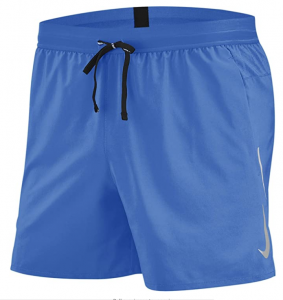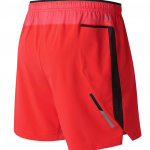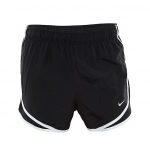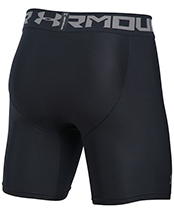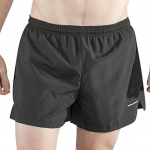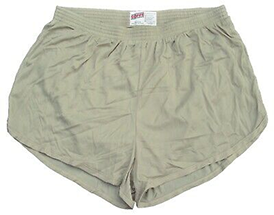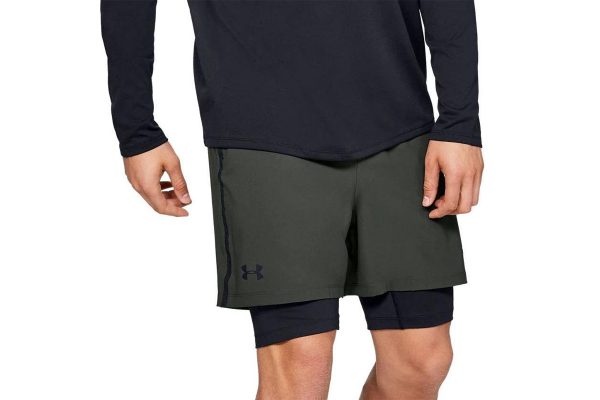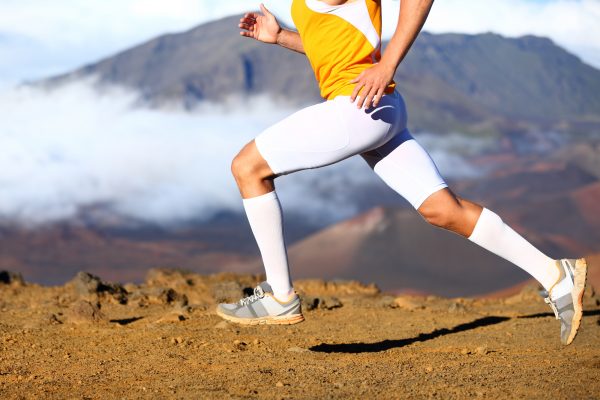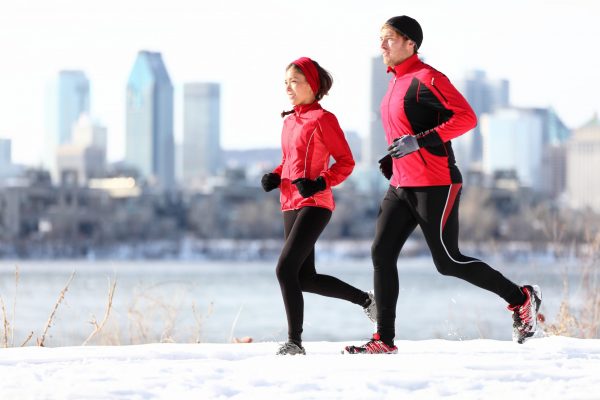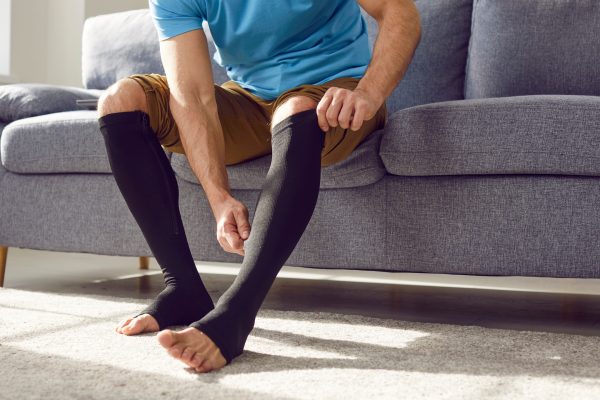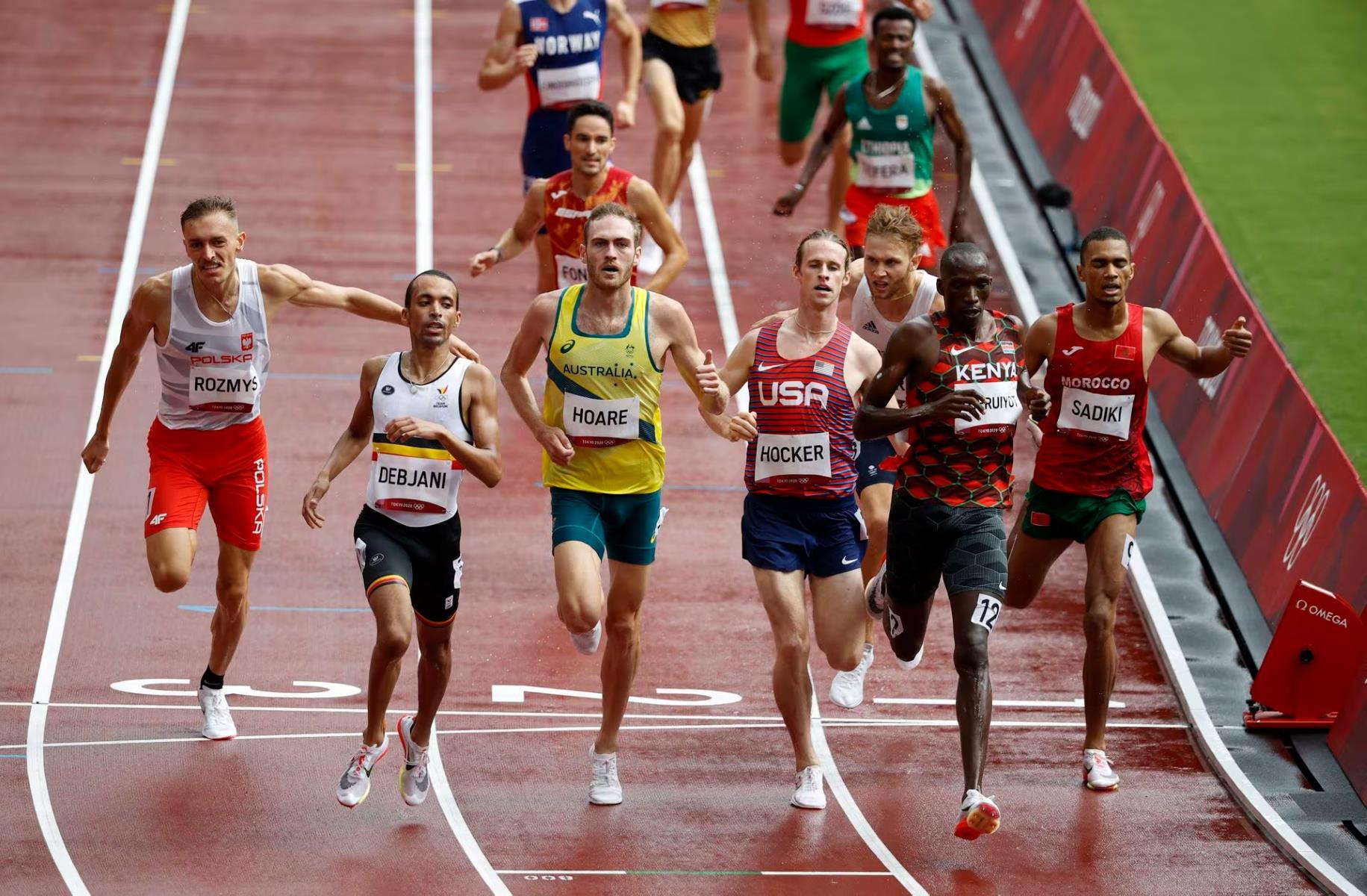Home> Guides and Tips > Running Shorts: Ultimate Buying Guide
Running Shorts: Ultimate Buying Guide
- What Are Running Shorts?
- Why Wear Running Shorts?
- What Types Of Shorts Are Best For Running?
- What Materials Are Running Shorts Made Of?
- What Length Shorts For Running?
- What Are The Features To Look For In Running Shorts?
- Is There A Difference Between Men, Women And Unisex Running Shorts?
- How To Know The Right Running Shorts?
- How To Choose Good Running Shorts? (AKA TL;DR)
- Frequently Asked Questions About Running Shorts

If you’ve ever shopped for sportswear, you probably would have felt thrown off by their steep price-tags. Why spend the extra money on clothes that you’re just going to sweat it out in, you might ask?
Although it might make more sense to opt for the cheapest options, sportswear is not quite the same as everyday clothing. Plenty of technology goes into manufacturing sportswear, which inevitably results in higher production costs and overall costs.
With so many options available in the market, making a decision can be difficult and even painful. Before you fall into the trap of buying running shorts just because they’re cute, read this guide for everything you need to know about them.
What Are Running Shorts?
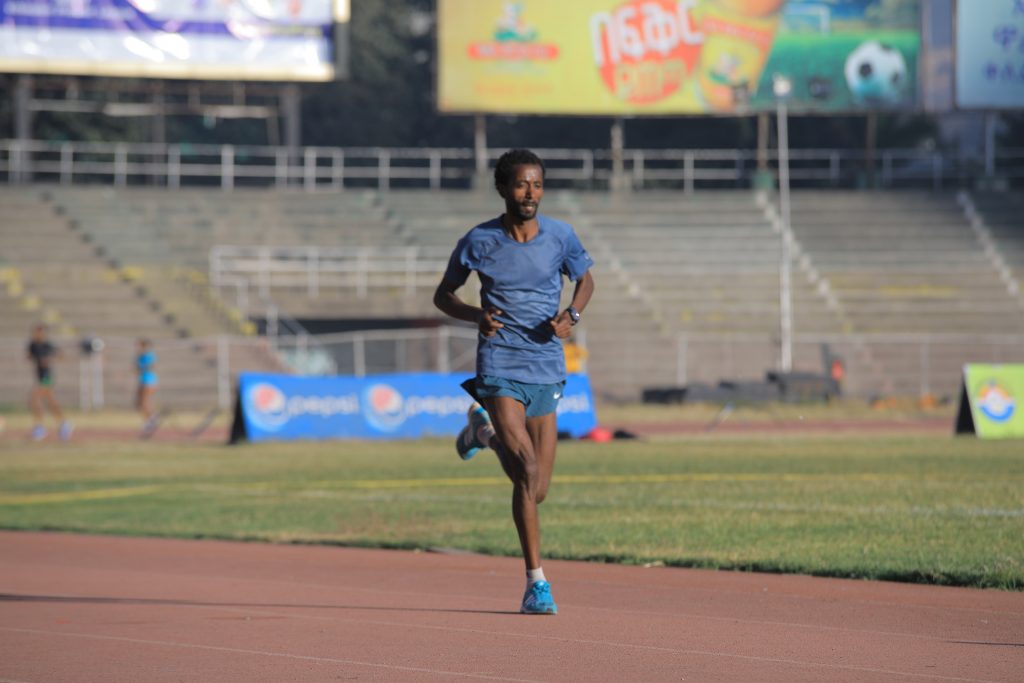
Photo from Fitsum Admasu on Unsplash
Running shorts are a specialized type of shorts that are worn mainly by runners. Like any kind of workout clothes, they are made to be both comfortable and practical. They are also lighter and more breathable than everyday shorts, to better facilitate the running process and improve performance.
If you are an active person who likes switching between different sports/workouts, you might not require a specific type of running short. However, if you are an avid runner who wants to reap the benefits of running, or an athlete who needs to be in optimal condition, you will find that running shorts help take seconds off each run to make a significant difference.
Whether you are running on a track, trail, or local road, you will definitely find a pair of running shorts that suits you.
Why Wear Running Shorts?
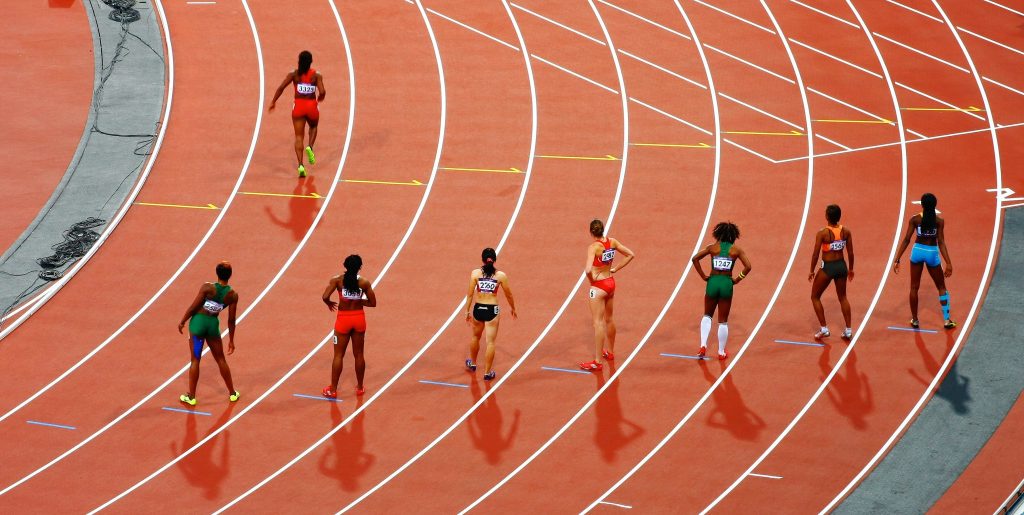
Photo by Matt Lee on Unsplash
Every second counts when you’re in a race. Wearing a pair of running shorts can boost your performance or give you that slight advantage over your competitors so you can emerge victorious. While you can take account of fashion, you need to keep in mind that your goal in buying workout clothes is to make working out as comfortable as possible whether in the rain, cold, or 80 degree Fahrenheit weather.
The best workout clothes must be able to provide you comfort and support, add protection during activity, prevent injury, boost your performance and confidence, and even aid in your recovery post-exercise.
In a nutshell, this is pretty much what the ideal pair of running shorts should be like.
What Types Of Shorts Are Best For Running?
When it comes to types, you should be looking at freedom movements that it will allow. The type of running shorts most suitable for you depends largely on the distance you run, as well as the intensity of the run itself.
The 3 main types of running shorts are: compression running shorts, split-leg running shorts,and V-notch running shorts.
Compression Running Shorts
Made primarily from a stretchy material called spandex, compression shorts are gaining traction among athletes of all levels.
These shorts are named such due to the “compression” or pressure that it provides when you wear it. When we say pressure, we’re mainly talking about a tight fit with a sturdy construction, as well as a good grip around the edges.
There are two types of compression shorts and these are underwear or outerwear. It’s a great undergarment and also can double as an outer garment. it just means that you can wear compression shorts alone or as an inner short.
These are best when you’re going for extreme sports and endurance races. They are usually made of longer inseams and probably your best option when you’re looking for activewear to prevent chafing as well as one that will give you exceptional flexibility. Compression shorts are also warmer and therefore helps reduce muscle fatigue and lower the risk of muscle soreness.
Recovery-wise, compression shorts can also be worn after and between strenuous workout as it increases blood flow, and support key muscle areas such as the glutes and hamstrings.
Specifications:
- Tough, lightweight HeatFear fabric, with all the performance benefits of UA Compression
- Material wicks sweat & dries really fast
- Stretch mesh gusset & inseam panels deliver strategic ventilation
- 4 way stretch construction moves better in every direction
V-Notch Running Shorts
V-notch running shorts are the most popular type of running shorts. It got its name from the upside-down v-shaped cut from the half-inch of the hem. Compared to the traditional cut of shorts that are sewn all the way down, the v-notch running shorts due to its cut allows for a greater range of movements.
Specifications:
- Shell 100% Polymicro Polyster, Lining 100% Polyster Crepe
- Lightweight moisture wicking fabric tok kepp you dry and cool
- V.Notch side split. 3.75″ inseam and Multi-Sport Fit
- Material wicks heat and dries really fast
Split-Leg Running Shorts
Similar to the v-notch, split leg type of running shorts have an opening cut on their hems. However, the split-leg design is sewn by overlapping the front panel over the back. While v-notch is a simple cut, the v-shaped in split shorts is made by this overlap.
Many runners prefer this type of shorts because they can make longer strides with the flexibility offered by the split design. Shorts with the split-leg design usually come with shorter inseams. Unlike shorts with more conventional cuts, this type of running shorts allow for a wider range of movement.
Specifications:
- Running short featuring a covered elastic waistband
- Inside key pocket
- Moisture management technology
- Inseam: 2.25″
What Materials Are Running Shorts Made Of?
Exercise clothing comes in a variety of fabric materials. Materials can be grouped into two broad categories, namely synthetic fibers and natural fibers.
Synthetic fibers refer to materials such as polyester, spandex, and nylon, whereas natural fibers refer to materials such as cotton and (less frequently) bamboo. Each set of materials comes with its own advantages and disadvantages.
While running shorts made from synthetic fibers tend to be more durable, they’re often not as breathable as running shorts made from natural fibers. On the other hand, running shorts made from natural fibers offer great stretch and movement, but are prone to chafing.
When looking at your choice of fabric materials, keep in mind how it will have an impact your running performance. The sweat management technology that goes into it will determine whether you can run at prolonged lengths.
| Type Of Material | Description |
| Polyester | The majority of workout clothes manufactured today are made of polyester. This type of cloth resembles plastic which makes it lightweight. Polyester is preferred by many athletes because of its durability and breathability. It is also wrinkle-resistant. |
| Nylon | Unlike polyester, nylon’s hydrophilic nature makes it less odorous. Nylon is also sweat-wicking and has great stretch and recovery. If you’re planning for an active day, nylon would probably be your best option. |
| Spandex | Spandex, which is also known by the name lycra, is the stretchy material that makes up compression shorts. Almost all workout clothes are 5 to 10 percent made of spandex. Many athletes like this material because of its elasticity and snug fit. |
| Cotton | Cotton is made from natural fibers. It feels great on our skin because it is smooth and absorbs sweat/moisture readily. Shorts made of 100% cotton have smooth, soft fabric and offer produce little friction during workouts. |
| Polypropylene | This type of fabric is best used as a base-layer as it is water-resistant—it stays dry even after heavy sweating. |
| Bamboo | If you are looking for an eco-friendly alternative, there are running shorts that are made of bamboo natural fibers. With the properties of bamboo, it is naturally sweat-wicking and anti-bacterial. Like cotton, it is also incredibly soft. |
| Wool | Wool can be used both in cold and hot weather due to its temperature regulating qualities. When combined with spandex, wool-made running shorts will give you more fitted-shape. It is also lightweight and breathable. |
What Length Shorts For Running?
Running shorts come mainly in 3 different lengths: 3 inch running shorts, 5 inch running shorts and 7 inch running shorts – the difference lies in their inseams. We have mentioned inseams a couple of times but have not defined what it is. Inseam simply refers to the length of your shorts.
One question that we often hear: what is the right length of inseams for running shorts? Some would say you should get shorter inseam as it provides more movement as opposed to longer inseams that cause chafing in the front leg. While that could be true, preference in inseams should depend on your where you will be using the shorts and what you will use them for.
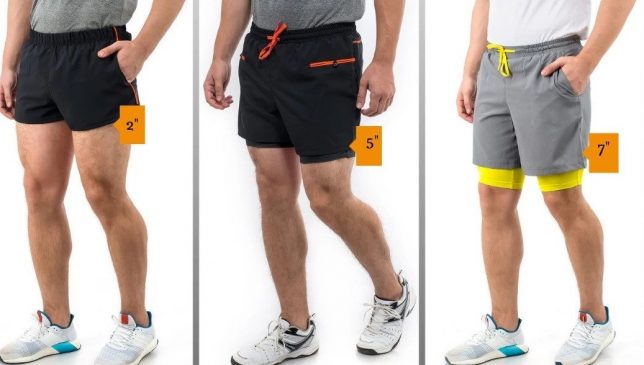
Photo from TRUEREVO
Short Inseam (3 Inches Or Shorter)
Short inseam running shorts provide the best ventilation and range of movement. They are the ideal option for both sprinting and marathon runs. Because they have less fabric and exposes the majority part of the skin, these shorts can keep you cool during the summer. Overall, because of their technical construction, lightweight and non-restrictive cut, they are the best option for all-out performance. Brands like Nike, Adidas, and Lululemon have a great selection of short inseam shorts for both men and women. Check out this collection of 3 inch running shorts.
Middle Inseam (5 – 7 Inches)
Between short and long inseams, you have middle inseam running shorts that is versatile for different activities. If you neither like short shorts nor longer ones, these are probably your best option. When you regularly switch from track to trail and having different types of running shorts for every run is not ideal for budget, you should go for shorts with middle inseam. Baleaf, New Balance, and Under Armour has the best selection of middle inseam running shorts. They usually comes in elastic waistbands.
Long Inseam (7 Inches Or Longer)
Long inseam shorts have a healthy amount of fabric that go just above the knee. They are the recommended length for when you’re running on the track, or the road. They are also used for marathons when the goal is for the material to not rub against the skin due to its long length. You will have to most coverage with this length. So if you’re into trail running or just like running off-road, long inseam running shorts offers you protection from scratching your skin from passing bushes or shrubs. No more insect bites and ticks.
However, when you’re going for this length, make sure that you are choosing the right fabric so they don’t hamper your performance. Longer inseam shorts trend to build up heat and moisture on a warm day if the material doesn’t have a breathability feature. Ideally, find one that is sweat-wicking and ensuring ventilation.
What Are The Features To Look For In Running Shorts?
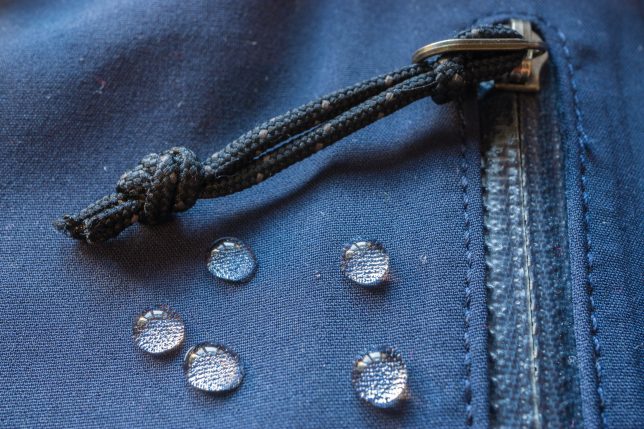
Photo by PavelStock from Adobe Stock
This depends largely on personal preference, but features like pockets, reflective elements, and an adjustable waistband are great features that all running shorts should have. Some running shorts are also odor-resistant so you can sweat it out without worrying about smelling bad. A four-way stretch feature means that you’ll have greater freedom of movement, and, consequently, derive greater pleasure out of each run.
4-Way Stretch Fabric
Now that we have discussed the fabric materials, a nice feature to look for is stretch. Specifically, 4-way stretch fabrics which in essence stretch in any direction you try. There is another type is stretch which is called a 2-way stretch, which quite self-explainatory, stretches in just one direction. Running shorts that stretch and recovers both crosswise and lengthwise is called a 4-way stretch.
UPF 50+ Protection
We already know about SPF that is found mostly on lotions and other skin-care products. We use SPF to protect our skin from UV rays. But did you know that clothes have ultraviolet protection factor, too? Especially in running, which we usually do outdoors, we get a lot of exposure from the sun. UPF (or ultraviolet protection) benefits that we get from fabric is a nice added protection from sun and ultraviolet exposure. UPF 50+ is the highest protection that you can get from sun-protective clothing. Here are some Athleta shorts that help protect you from the sun.
2-In-1 Features (e.g. Compression Liners)
What do runners wear under their shorts? Quick answer: liners. A great option for those that want some support but also prefers the look of a traditional short may find liner features come in handy. The 2-in-1 feature adds either a compression liner or a mesh liner inside as support. Although compression shorts is quite snug to the body but provides the best muscle support, many runners find it uncomfortable to wear compression shorts alone as it is revealing. There are a lot of running short brands that add compression lining as a built-in feature. On the other hand, built-in mesh briefs provide a breathable fit. Due to its net-like material, it gives extra ventilation that you might see handy during the hottest days of running. Check out this article for more information about 2-in-1 features.
Visibility And Reflective Features
This one special feature might be something that others find unnecessary. But runners who usually run in low visibility tracks will find it useful. If you like running during the night, don’t forget to look for running shorts with visibility and reflective features. Reflective details, as well as bright colored running shorts, may add safety and visibility to drivers, especially when you’re running on the highway.
Waistbands (Adjustable Or Elastic)
Elastic waistbands that offer a snug fit and can be folded down is another preference for most women runners. These versatile fold-over waistband shorts provides a perfect fit that allows women to move easily. Even for pregnant women who wanted to stay active in the early weeks of pregnancy, they specifically look for running shorts that has a tight waistband. Ideally, they can roll this down or up. High-waisted running shorts that are designed to flaunt the woman’s shape typically has thicker elastic waistbands. On the other hand, most running shorts for men will have either have just the right size of waistband thickness or an adjustable waistband.
Pockets
A lot of times, you will need to bring your phone, or some cash, or house keys. Hence, built-in pockets will be a nice added feature as opposed to using a belt-bag or a small bag. Some running shorts will have deep side pockets huge enough to fit important items. Pockets are usually hidden in the waistband of your shorts and can range in size. A lot of runners are really happy with shorts that have deep side pockets. When you’re looking for this feature, you must get the zipped one. Your pockets should zip up so that you don’t need to worry that you might lose your items during your run. Check out this article for more information about running shorts with pockets.
Flatlock Seams
We don’t want to get very technical here so a flatlock stitch is simply a sewing technique that will have almost no bulk. This type of sewing is best for activewear as it makes them the most durable due to the stitching materials. The flatlock stitching technique helps to reduce friction on the user’s skin. This feature will come in handy during long runs as well as on humid days when chafing creates an issue.
Gusseted Crotch Design
A gusseted design is a diamond-shaped piece that’s commonly used as a sewing technique for shorts, jeans, yoga pants, and other bottom wears. Ideally, they are made in this design so that it allows for undisturbed movements during any type of workout activity. To look for this feature, check the crotch part of the shorts. If you see a triangular or diamond shape sewn in the crotch, you know you have gusseted crotch design.
Cable Holes
A lot of times, our headphones restrict our movements and get in the way of our workout. If you’re looking to run with some music on, cable holes is a must-have feature for your running shorts (unless you have some Airpods on, this will totally be unnecessary). These Baleaf shorts have this specific feature that comes with a hidden pocket where you can put your phone inside.
Is There A Difference Between Men, Women And Unisex Running Shorts?
Not all running shorts are created equal – they are designed to fit the gender-specific needs of runners. Men and women’s bodies differ vastly, especially in three main areas/parts: the waist, hips and thighs. While running shorts can be worn interchangeably between genders, this is generally not advisable: you could opt for these unisex running shorts instead. Let’s explore the differences between men, women, and unisex running shorts.
Men’s Running Shorts
Men’s running shorts are designed and cut uniquely with the male body in mind. Specifically, it has a bigger space in the crotch area, with the built-in liner offering more support in the groin. While some men preferred wearing a jockstrap for added support, most running shorts will have a built-in liner as an added feature so jockstraps won’t be necessary. As mentioned earlier, mesh liners or compression liners are used as a substitute for underwear and jockstraps. This feature is added to prevent discomfort with layers as well as chafing. Men’s running shorts also usually have longer inseams. But then again, some types of run like sprints and marathon will require running shorts with shorter inseams for bigger strides and more flexibility.
Women’s Running Shorts
Women’s running shorts, on the other hand, will have less space in the crotch area but will have more space in the bottom area. The cuts should fit the female waist, hips, and thighs and with emphasis on the waist. Women’s running shorts are uniquely designed for optimum freedom for leg movements, and to allow maximum ventilation. This is why most women’s running shorts that you will find in the market have shorter inseams. A lot of female runners also find tight-fitting shorts more comfortable than loose ones. If we look at the difference between men and women’s running shorts, it all boils down to comfort. When it comes to comfort, running shorts cater to needs based on the structure, shape if you will, of the male and female body.
Unisex Running Shorts
If you remove the gender-specific features, you get unisex running shorts. These are clothes that do not particularly address body shape. While you can still find brands that sell unisex running shorts, you will notice that Adidas, Baleaf, Nike, and other trusted brands don’t offer a unisex variant. Trusted brands categorize their workout clothing into men and women, or girls and boys categories. The reason behind this is that unisex workout clothes, specifically, running shorts don’t offer much support and chafing-prevention.
How To Know The Right Running Shorts?
Trail Running

Photo by Brian Erickson on Unsplash
Trail running or off-road running usually takes place in mountainous areas, but can also involve fields, coastal paths, and dirt tracks. It is suitable for anyone from the novice runner to the most veteran of runners. Every trail has its own unique set of challenges. Especially when you’re running on a new track, you can never expect if there are a lot of bushes to pass through. So you’re better off with a long inseam short.
If you want a dynamic running experience, you will surely enjoy trail running. However, if you’re planning to tackle a lot of trails, or considering adding trail running in your routine, you need to invest not only in the right kind of shoes but also a good running shorts. A pair of shorts with a 2-in-1 feature that combines a compressive liner and a looser outer-layer performs well on the trail. Your best pick is one with zipped pockets to secure your items especially when you’re on hilly trains.
The weather is a little tricky off the road. One minute, it might we warm, and the next minute, you wished you packed a jacket or an added layer. Your best bet of shorts is one that is lightweight and fast-drying, but also one that regulates temperature. Your best bet is merino wool that does just that. As it is hard to come by running shorts in merino wool, your next best option is polyester. It will keep you dry even in a humid trail.
Track Running

Photo by Jonathan Chng on Unsplash
In track, you either look for a split-leg running shorts or v-notch which also comes in a super light material like polyester or nylon. These types are shorts are suitable for aggressive sprints as well as long-distance running. Although this can’t stop you from wearing compression shorts if you prefer a tight fit during a speedy run. A good pair of shorts suitable for the track is not written in stone as track running itself has some degree of variation. You probably can forego features such as reflective details, or cable holes in this one. It’s a little tricky inside the lanes. Your position in lanes depends on your speed. In track running, you should be aware of your surroundings as most of the time, you will be running in groups. While running, you need to know whether someone is behind you so you can make way for them.
Road Running

Photo by Maarten van den Heuvel on Unsplash
Roadrunners need a more versatile garment which can be great in any weather. So you are better off with a lightweight material, moisture-wicking, and breathable. As we have mentioned repeatedly, you need reflective elements in your running shorts for added visibility, and to avoid accidents on the road. It’s also a good tip worth mentioning that you need to run against traffic. This way you will see oncoming cars and you can avoid them yourself. Switching back to the right side of the road keeps you safe. You also need to avoid wearing headphones or perhaps tone down your music a little bit, to become aware of your surroundings.
How To Choose Good Running Shorts? (AKA TL;DR)
So you’ve gone from being the quintessential novice runner to a running shorts expert. You now can identify which type of running shorts to use for your sprint, and which ones you can use on the road. Essentially, you already know that fabric materials that have good sweat management, while also being breathable and durable should be the first thing you’d be looking for when you’ve gone to an athletic store.
If there’s one takeaway from this super long guide, that is, when choosing the perfect running shorts, there is no hard and fast rule on which type of fabric material is the perfect choice. But it’s worth knowing which will assist you in better performance the most.
Choose your ideal pair of running shorts using these factors: 1) type of use (e.g. marathon, short-distance sprinting) and 2) features you need (e.g. pockets, reflective details).
Another thing that probably has a major factor here, is that there is such a thing as ‘enclothed cognition.’ If you’ve never heard of the term, it basically refers to clothing and how it changes one person’s attitude, personality, and mood. When you wear certain clothes, it ‘magically’ changes your mindset. While there are not enough psychology studies that prove this, and that a lot of it has to do with the symbolic meanings that society attaches to particular images, we can say that enclothed cognition definitely plays a role in workout clothes. When you’re unmotivated to go to the gym, the mere act of wearing gym clothes will motivate you to spend time there. Good athletic wear leaves no room for excuses. When you wear the right workout clothes that you know are designed to improve your performance, it pushes you to perform better.
Frequently Asked Questions About Running Shorts
1. Why Are Running Shorts So Short?
The less fabric there is, the less the amount of resistance: with no material flapping around your knees, you’re less likely to experience chaffing and feel lighter. Running shorts are short to minimize resistance for better performance overall.
2. What Are 5-Inch Running Shorts?
5-inch running shorts are medium-length running shorts. They combine the benefits of running shorts with short inseams (3 inches) and those with longer inseams (10 or more inseams), and are hence perfect for both running and workout sessions.
3. Why Are Running Shorts So Expensive?
As mentioned earlier, workout clothes tend to be expensive. Again, considering the technology that goes into your shorts, it just makes sense that the price adds up. However, you don’t have to spend a fortune to find a good pair of running shorts. Adidas, Nike, Baleaf, Under Armour, Asics, and other athletic brands price their workout wears very flexibly from as low as $20 to as high as $80 to a hundred. Reebok, Lululemon, and ASOS have a wide selection of inexpensive running shorts. Running shorts are costly mainly because of the technology that is involved. Some features include waterproof ability, cooling technology, and body-sculpting technology.
4. How To Choose Good Running Shorts?
Just because it’s expensive doesn’t mean it’s necessarily good: consider factors like weather, the likelihood of chafing, and speed of running. When it comes to sizing guides, different brands have unique sizing. And the best advice we can give it to try them on. Stretch and bend in your clothes, try to sit and see if it goes up in your thigh just right. While you want your clothes to fit snugly, you want them to be just loose just enough so that it doesn’t restrict your performance.
5. How Many Pairs Of Running Shorts Should I Have?
Ideally, one pair for each type of run: for instance, if you frequently run both marathons and short-distance runs, you should have 1 pair of running shorts with short inseams, and 1 pair of running shorts with longer inseams.
By: Sunny • Running Shorts: Ultimate Buying Guide
The Perfect Fit: Comparing Adidas and Nike Running Shorts Sizes
By: Sunny • 2 In 1 Running Shorts
Unraveling the Benefits of 2-in-1 Running Shorts: What’s the Point?
By: Sunny • Design: Best Running Shorts
Unveiling the Charm of Running Skirts: More Than Just a Fashion Statement
By: Sunny • Marathon Running Shorts
The Best Compression Shorts for Marathon Training: Your Ultimate Guide
By: Gerald • Trail Running Shorts
The Pros and Cons of Compression Shorts for Different Types of Runs
By: Gerald • Brand: Best Running Shorts
How to Choose Running Shorts for Different Weather Types: A Comprehensive Guide
By: Gerald • Running Shorts: Ultimate Buying Guide
Is it Better to Run with Long Pants or Shorts? A Detailed Exploration
By: Gerald • Brand: Best Running Shorts
Featured
By: Sunny • Featured
By: Deloria Delagarza • Featured
By: Margareta Burford • Featured
By: Kordula Robledo • Featured
By: Bonni Pitre • Featured
By: Alberta Lazar • Featured
